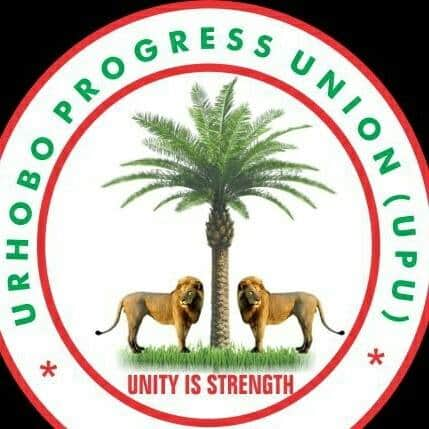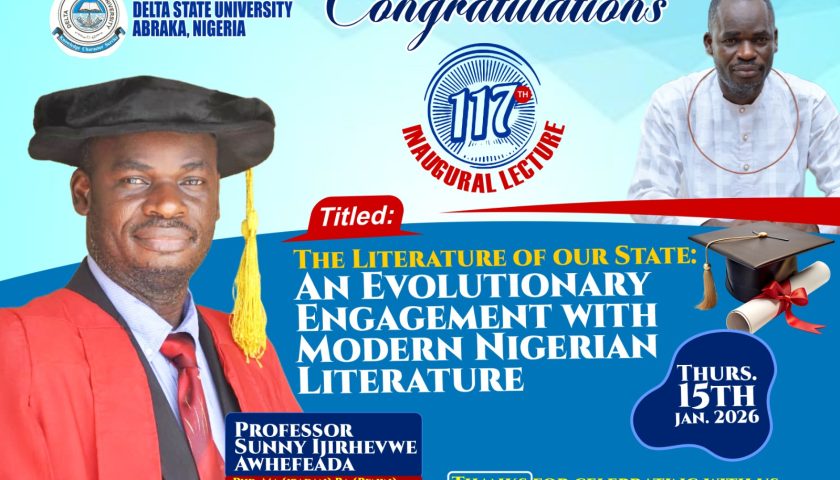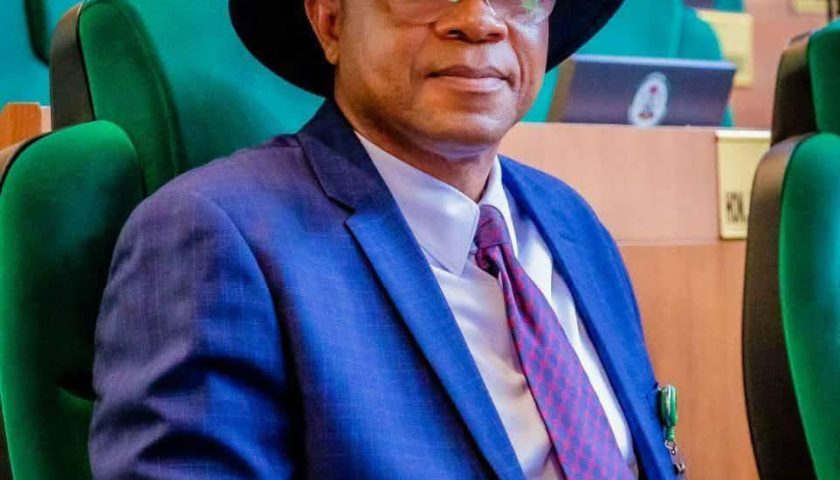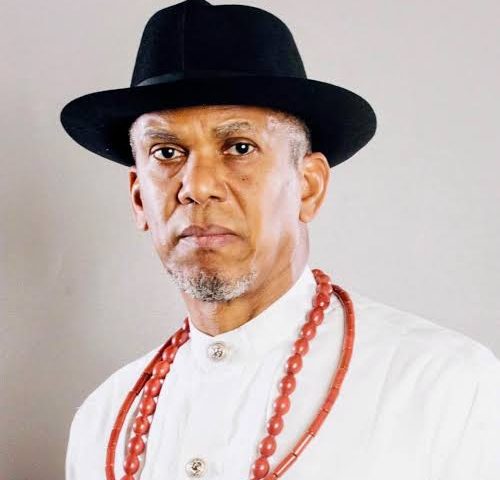By John Uwa (PhD)
Introduction
The Urhobo Progress Union (UPU), the apex sociocultural body tasked with protecting and advocating for the Urhobo nation in Delta State, Nigeria and anywhere in the world, is at a critical juncture and stands at a pivotal moment in its history as its 2025 election inches nearer with each passing day. The upcoming election presents an opportunity for renewal, but it is under threat from powerful interests seeking to, or, not to maintain the status quo.
As patriotic stakeholders rally against clannish patronage and demand a return to the UPU’s founding principles, it is imperative to appeal to the ‘powers-that-be’ in Urhobo land to recognize the dangers that may be posed by retrogressive interference from elites, traditional institutions, and politicians in the choice of UPU leadership.
The forthcoming UPU election is not merely an administrative exercise—it is a decisive opportunity to chart a course toward renewal or to collectively make a very clear statement about our collective refusal to succumb to the inertia of clannish politics and elite manipulations to achieve some political correctness.
And as factions align with the moribund leadership attempt to exploit our primordial, but often unprofitable, sentiments, the Urhobo people must recognize the existential stakes and rally behind visionary leadership capable of restoring the ‘lost utopia’ of Urhobo nation’s dignity, which was at its peak from age of Mowoe to the age of Okumagba.
In recent years, the UPU has been weakened by internal divisions and external manipulation from political ‘kingmakers’ who rely on the largess of political office to make themselves bigger than they are; resulting in ‘gross incompetence’, misplaced patriotism and tragic individualism—the nonidentical twin self-aggrandizement from the UPU leadership; therefore, diminishing its influence within Delta State and Nigeria. The consequences are clear: the Urhobo nation has lost its rightful place of pride among comity of Nigeria’s ethnic groups, and its interests are increasingly marginalized, trivialized, politicized and ethicised.
The current disquiet within the UPU, backlashing from unwholesome desires to hold onto leadership, even against popular yearnings, with the tenacity of a limpet, reflects a broader struggle between visionary leaders committed to progress and entrenched elites resistant to change.
Even more worrisome to me is the emergence of clannish narratives within spaces that are supposedly guided by ‘Urhobo Ovuovo’ ideology; how did we suddenly forget that ‘we are one’? The tragedy of such posture is that, allowing clannish sentiment to dictate the election will deepen divisions, entrench mediocrity, and betray future generations waiting on the fringes for quality and patriotic leadership.
The Urhobo nation must unite around leaders who prioritize collective advancement over personal gain. Therefore, this essay is a patriotic prompting of all stakeholders to reject divisive tactics and support individuals with proven dedication to the Urhobo cause.
The UPU must be revitalized to champion resource allocation or fiscal federalism, educational opportunities, healthcare, economic empowerment, and the dignity of the Urhobo people against aggression and oppression everywhere. Anything less will perpetuate stagnation and disillusionment for many more years. For example, we can no longer stand aloof, for any reason, and allow a repeat of the Okuama experience, or the aggression against our brothers and sister in Warri without actions and advocacies that will stem the ugly trend against our people; something that has gone unquestioned for too long. We must institute a UPU that can demand for peace and justice in equal measure; a UPU that will be first in peace, first in ‘war’ and first in the heart of Urhobo collective unconscious.
Therefore, as our dear Urhobo nation navigates the complexities of contemporary governance and leadership in homeland, the significance or otherwise of traditional institutions (Ivie and Presidents General) becomes more and more embedded on the front burner of discourses on Urhobo survival; or is it revival? perhaps, as a result of the influence those institutions wield on the collective subconscious of Urhobo people.
To that extent, the centrality of the Urhobo traditional institutions to the emergence of The UPU executive arm does not only translates, in some undeniable measures, to its ‘continuing relevance’ in the unconscious of the Urhobo people, but also a litmus test of the role of traditional leadership in the present and future unity of Urhobo nation.
The populist expectations of traditional institution is high for obvious reasons; when gods, from their celestial habitats, manifest as mortals, they automatically carry the burden of leadership, which they must be aware of at all time; the same reason why our kings are seen ‘gods or it demigods?
The forthcoming elections of the Urhobo Progress Union (UPU) present not only a critical juncture for the political landscape of the Urhobo nation but also serve as a test of the existential ideology of ‘Ovuovo’—an Urhobo principle, collectively held in trust by our kings for the entire Urhobo nation; a principle that epitomizes unity in diversity, communalism, collective identity, and a collective social responsibility. Against this background lies the test of our collective determination to be united as one nation under a united Ivie; and the UPU 2025 election presents a platform or a laboratory to run the test of our unity as a nation.
Ovuovo encapsulates the Urhobo philosophy of communalism and shared responsibility. It underscores the importance of unity among the Urhobo people, transcending individual ambitions for the collective good. In many ways, Ovuovo is a lived ideology, manifesting in community development initiatives, cultural preservation, and mutual assistance.
It is our breastplate of ‘war’ and we are exposed or weakened without it. Whether we are aware of it or not, the tension between modern political aspirations and traditional values is central to Urhobo survival. And the more urbanization and globalization exert influence, so that our nation is not left behind in new ways of doing things—leadership inclusive, the more our adherence to Ovuovo’s principles is increasingly tested.
The UPU election is therefore not merely procedural but resonates deeply with the core Urhobo identity and communal ethos. Therefore, an unbiased interference in the UPU elections will not only repose unquestionable confidence in our traditional institution, it will also be engraved in our hearts as a lasting expression of Urhobo identity at a time when it is often overshadowed by broader Delta and Nigerian narratives. The outcomes of these elections can either reinforce or undermine existing traditional structures, governance and social cohesion within the Urhobo nation.
By the same token, unbiased intervention can strengthen traditional institutions by encouraging responsible leadership and active community participation of Urhobo sons and daughters in both the affairs of the kingdoms and UPU. Without disrespect for the traditional institutions, I am sure that every patriotic son and daughter of Urhobo nation will agree with me that Kings who align their intervention in UPU election with the ‘Ovuovo’ principles will attract a renewed sense of loyalty and commitment among the Urhobo people.
However, I don’t know what sense of loyalty doing the otherwise will attract.
Let us at this point reason together against the background of the above submission; so I ask: wouldn’t undue interference in the UPU elections exacerbate existing divisions within the Urhobo nation—fostering rivalry among candidates and undermining communal values? Wouldn’t the politicization of culture lead to factions, detracting us from the unity that Ovuovo promotes? Wouldn’t the external actors attempting to manipulate UPU elections for personal gains through our Urhobo traditional institutions compromise the integrity of the traditional institutions and the elections—rendering the outcomes irrelevant to the needs of Urhobo nation?
The backlashes from these rhetorical questions are palpable: the UPU has, over recent years, lost its institutional vigor; the Urhobo nation, once a proud contributor to Nigeria’s cultural and economic fabric, now finds itself marginalized in matters of national importance. From the neglect of infrastructure in Urhoboland to the underrepresentation of Urhobo voices in key appointments, and the erosion of the UPU’s influence has exacted a heavy toll.
If the speculations that a cabal of traditional rulers, PGs, politicians, and elite actors is cynically weaponizing clannish allegiances to block reform and perpetuate their grip on power, then it would mean that our long wait for revival is far from over.
This is because, by reducing the UPU’s leadership to a game of sectional chess, they seek to preserve their access to resources and patronage networks, even if it means sacrificing the broader aspirations of the Urhobo people.
This is a betrayal of the very essence of the UPU’s founding ideals. Clannish patronage is not merely a political tactic—it is a regressive force that balkanizes the Urhobo nation, stifles meritocracy, and ensures that only the most craven loyalists rise to leadership.
To that extent, this article is a plea to our traditional institutions and all our visionary Leaders to close ranks for the collective good; because, the Urhobo nation does not lack talent, resources, or potential.
What it needs is leadership unafraid to confront the status quo. The next UPU leadership must prioritize strategic advocacy for oil-producing communities devastated by environmental degradation, push for educational scholarships, and create economic opportunities that stem the tide of youth migration.
It must also reclaim the UPU’s role as a fearless defender of Urhobo rights in the corridors of power, from Abuja to Delta State.
Therefore, I call on the Urhobo electorate—represented by the traditional institutions, the PGs and other selected delegates, the choice is clear: allow the forces of darkness to continue, against the collective interests, relinquishing the UPU to its moribund state, or seize this moment to usher in a new era of accountability and progress. Reject candidates imposed by vested interests, demand transparent, free, and fair elections. Insist on leaders who embody integrity, competence, and a proven track record of service.
The era of trading dignity for handouts must end now or we all fade into irrelevance. The people will hold us accountable for prioritizing power over principle. Therefore, let us choose leaders who will stand tall, speak loud, and fight for our collective destiny.
The election will serve as a litmus test for the resilience of traditional institutions and the existential ideology of Ovuovo; it will show that the process is not merely about selecting leaders but fundamentally intertwined with the core identity and future trajectory of the Urhobo people. The future is not inherited—it is earned—long live Urhobo nation.
Dr. John Uwa writes from Delta State University, Abraka.





